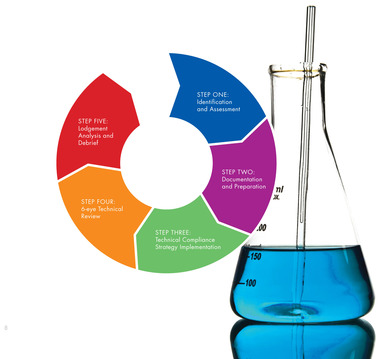United States v. McFerrin, 570 F. Supp. 3d 672, 675. (5th Circ. S.D. Tex. 2009)
Background
This appeal took place in 2009 in the Fifth Circuit in the Southern District of Texas.
The U.S. brought a suit against Arthur R. McFerrin seeking to recover a tax credit that the government alleges was erroneously paid. After a six day bench trial the district court ordered a repayment of the erroneously paid refund plus interest. An appeal was filed from the United States who vacated the district court’s judgment and remand for further proceedings.
Basic Facts
- McFerrin is a prominent chemical engineer who founded KMCO, Inc. which manufactures specialty chemicals for the petrochemical industry.
- This case centers on tax returns filed by McFerrin and Corporations in the tax year 1999 and tax credits for increasing research activities.
- McFerrin and Corporation filed tax reports in 2000 and did not claim any credits for increasing research activities. In 2003 they teamed up with alliantgroup and filed amended 1999 tax returns claiming an overall credit of $472,092.00. Within one month the IRS refunded McFerrin and Corp. $601,228.40 due to a clerical error. In October 2005, the United States filed a suit to recover this amount plus interest due to no documentary proof providing evidence to support these claims.
- On summary judgment, McFerrin and Corp. were order to fulfill this refund with interest.
Court’s Decision
Taxpayers are required to keep documented records in order to prove a claimed credit. If the taxpayer can provide this information, then the court should estimate the allowable tax credit.
A) McFerrin argues that the substantiation claims tried before the district court should have been dismissed because the government failed to comply with the rules and regulations. McFerrin stated that the government claimed he misrepresented facts however, the government only alleged a failure to document. The district court in this case disallowed this complaint from McFerrin and let the case go to trial.
B) The requirements of qualified research expenses(QREs) were argued. In particular, the “discovering information” requirement states that the information must be new to the taxpayer and research must be undertaken for the purpose of discovering information. McFerrin was relying on the 2001 Proposed regulations which did not state the importance of research activities to the U.S. economy, instead of following the 2003 Regulations which apply to taxable years ending on or after December 31, 2003. The government conceded and the district court did not review the evidence under the 2003 Regulations.
C) The government argues that errors made by them were “harmless.” The district court accepted that a few of McFerrin’s projects may have involved researched but were unpersuaded in that these projects could be deemed “qualified research”. The government also argues in the case that if there was qualified research, McFerrin did not supply documentation to prove these costs. If McFerrin can supply this documentation, the Court must estimate the expenses with these activities. Further proceedings are warranted for this argument.
D) The government claims that McFerrin’s bonus of $6.4 million in 2004 should be refunded as it is not a qualified research expense should there be a remand for a new trial. The district court determined this bonus was on the basis of profits and cash flow from KMCO rather than research performed in that year.
Findings
The Court used incorrect definitions for several QREs including discovering information and process of experimentation. Because of these issues, some of the tax credits from McFerrin could be found to be legitimate and the U.S. Court of Appeals for the 5th circuit vacates the judgment of the district court and remands for further proceedings consistent with this opinion.

Click here to read the full case: United States v. McFerrin, 570 F. Supp. 3d 672, 675. (5th Circ. S.D. Tex. 2009).
















